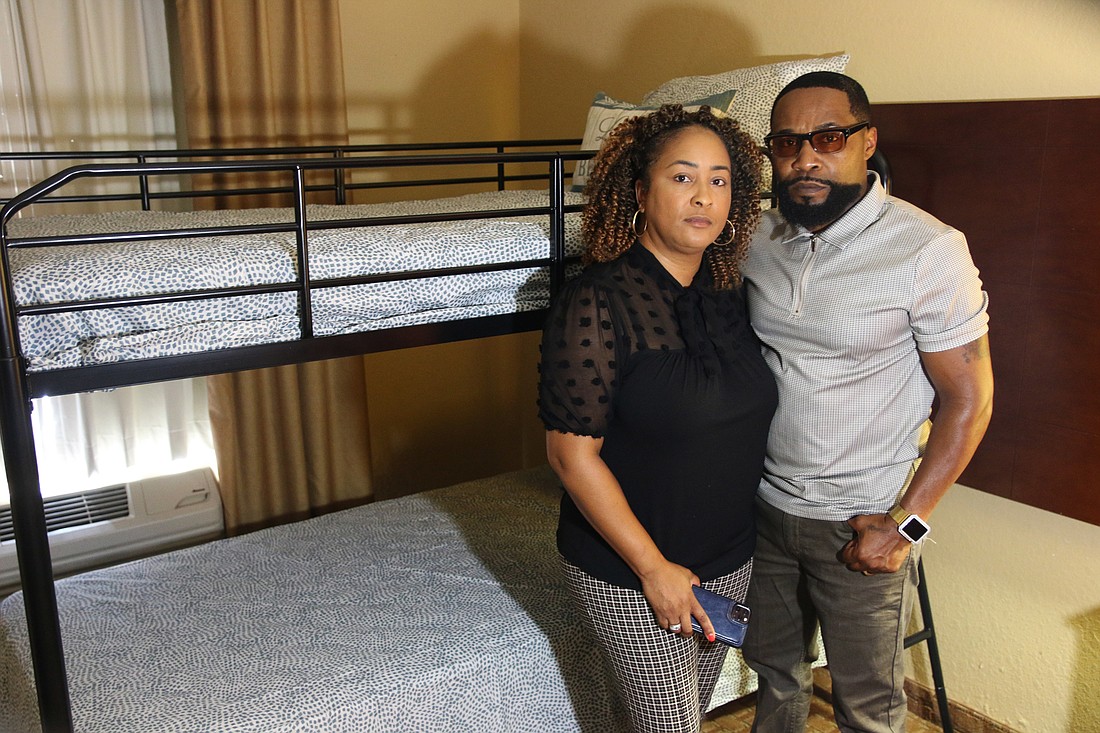- December 15, 2025

The U.S. Border Patrol has encountered over 93,000 unaccompanied children so far in 2021, and in light of the ongoing crisis, the Office of Refugee Resettlement is looking for facilities to help house these children.
A part owner of an assisted living facility in Ormond Beach is among those who are trying to answer the call, but she has encountered a significant hurdle: the city’s zoning laws.
Tara Johnson was approached in May by the ORR for the chance to convert her 110-bed assisted living facility into housing under the unaccompanied refugee minor program. She thought the building would be perfect for the initiative; the property is secluded, and it has a classroom, common areas, and even an in-house barbershop for the children. The work is already done; the rooms just need occupants.
The property — the Ormond Beach Observer is not disclosing its address to protect undocumented children in the event that they are housed there in the future — is zoned B-7 Highway Tourist Commercial. The city’s position is that using the property to house undocumented children is not identified or allowed within that zoning district.
But Johnson argues that this isn’t a regular foster group home. “This does not even fall into those guidelines,” she said. “The issue we have is over there where they have thousands and thousands of children, and we’re just trying to help.”
In an email to the Observer, City Manager Joyce Shanahan said that city staff has communicated with Johnson and presented her with two options for moving forward: 1) If she believes that Planning Director Steven Spraker made an error in the interpretation of the property’s use, she can file a $300 appeal to the City Commission; or 2) she can go through a Planned Business Development zoning process.
“The Planned Business Development zoning process is the only process that would allow the property owners to introduce uses not identified in the zoning district, through a public hearing process,” Shanahan said.
Under a B-7 zoning district, a building can be utilized in 13 different permitted uses, among them an assisted living facility, adult day care center, an office, funeral home, school, and transient lodging. Spraker, who also responded via email, said transient lodging would not apply to Johnson’s request because the city’s land development code states the property would have to be “licensed by the state as a hotel, motel, timeshare resort, bed and breakfast, executive suite or similar use.”
When asked if Johnson’s facility could qualify as a “community residential home,” a conditional use in the B-7 zoning district, Spraker said “No, the described use does not qualify as a community residential home.”
The city’s code states that a community residential home means a “a dwelling unit licensed to serve residents who are clients of the Department of Elderly Affairs, the Agency for Persons with Disabilities, the Department of Juvenile Justice, or the Department of Children and Families or licensed by the Agency for Health Care Administration which provides a living environment for 7 to 14 unrelated residents who operate as the functional equivalent of a family, including such supervision and care by supportive staff as may be necessary to meet the physical, emotional, and social needs of the residents.”
Johnson’s facility seeks to house 60 children.
Johnson has been at a standstill with the city since she first approached them in May. She said the appeals process suggested is a costly gamble for a temporary shelter at a time when her 28 employees have already been furloughed; her building has not been operating as an assisted living facility for months.
“I understand they have processes that may take months and months, but again this is an urgent matter coming from the Department of Homeland Security,” Johnson said. She would like the city to grant her a short-term approval to help the kids now.
Currently, there is only one unaccompanied refugee minor program in the state of Florida, and it’s located in Miami and run by the Catholic Charities of the Diocese of Miami. The Observer reached out to the organization to inquire if it encountered any zoning issues when setting up the program, but did not receive a response in time for publication.
Spraker said city staff has not contacted other jurisdictions to see how they have handled zoning laws in regards to unaccompanied refugee minor programs.
“Each jurisdiction has established uses for the individual zoning districts,” he said. “There is a process by which to seek the use as a planned development rezoning through the public hearing process. This application has been handled as any other use that is not allowed in a zoning district.”
City staff, he added, does not have the authority under the land development code to allow uses not identified in the zoning district.
The public hearing process is not an option the federal government will agree to undergo, Johnson explained, as it could put the undocumented children in danger by revealing the building’s location. She feels that the city is declining to assist in the federal government’s mission to find a comfortable and safe space for these children.
“Due to this program, it doesn’t fit in the paradigm of all the structures that you have, and down south treated it as such, but Ormond Beach will not,” Johnson said.